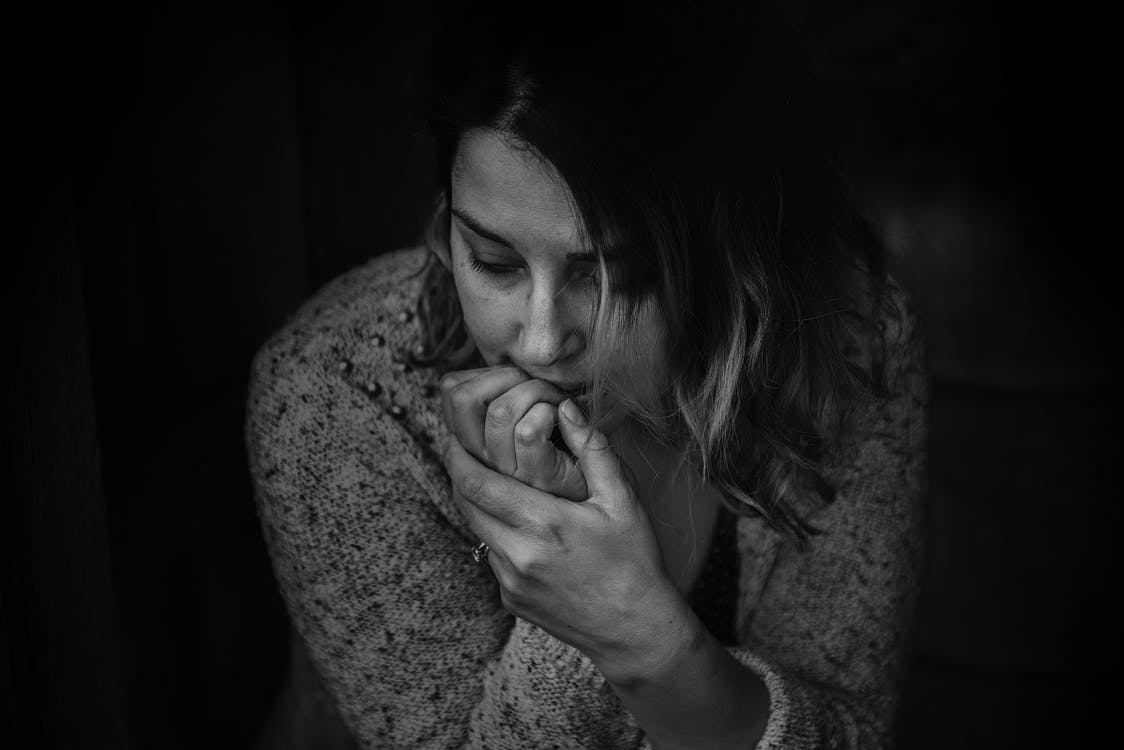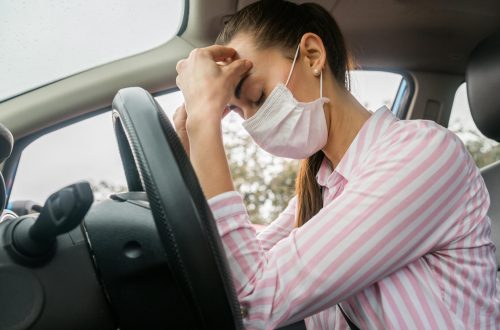According to the Center for Disease Control (CDC), the percentage of adults suffering from depression or anxiety is at an all-time high at 41.5%.
The recent COVID-19 pandemic is one of the many contributing factors to this rising statistic. Even after approximately two years, we are still reeling from the emotional burnout of the pandemic. From job instability, and health issues, to the uncertainty of the future, everything has worked together to take a toll on our mental health.
Remember, feeling sad or anxious is normal; however, suffering through excessive, repetitive, and prolonged episodes indicates you need professional help. Apart from that, you can also incorporate some lifestyle changes that benefit you.
So, without further ado, let’s get into what you can do for your anxiety and depression apart from seeking professional help.
Table of Contents
Eat Well
Anxiety or depression cannot be cured by consuming any particular meal or drink. However, a healthy diet, regular meals, and knowledge of any food sensitivities will all help support your mood and energy levels. In addition, maintaining an adequate water intake and reducing your alcoholic and caffeinated beverage use have been linked to decreased anxiety.
Unfortunately, people living in metropolitan cities have the most unhealthy eating habits and a high rate of mental disorders. For example, like other metropolitan cities, people in Chicago also have unhealthy eating habits and consumption patterns. However, it has led people to go for ketamine infusion in Chicago due to its promising results for anxiety and depression. It repairs synapses and produces glutamate, which results in progressive improvement. So one way or another, you will have to take charge of your anxiety and stress by controlling what goes in your body.
Processed and fast food might seem nice, and occasionally opting for them is not harmful; it is still better to stick to healthy food options. A good diet is a great way to provide your mind and body with enough fuel to deal with daily stress and is an ally for medication and infusions.
Sleep well
Anxiety and stress cause the body to need extra rest and sleep. However, stress and sleeping don’t get along very well. In one sense, anxiety might prevent you from getting enough sleep. Conversely, sleep deprivation may exacerbate anxiety symptoms. Those who have trouble sleeping regularly are at an even greater risk.
Do all you can to enhance your sleep patterns, often known as “sleep hygiene,” if you are having difficulties sleeping. Make your bedroom as conducive to sleep as possible, and establish a regular, soothing nighttime routine. Stay away from stimulating activities like electronics, caffeine, and cigarettes in the hours leading up to bedtime.
Meditate
The term “meditation” refers to focusing one’s mind on a mental exercise to improve one’s well-being, such as deep breathing or reciting a phrase. Getting spiritual enlightenment is considered the pinnacle of a meditative practice in the Buddhist faith. De-stressing and unwinding are central to many contemporary practices. Anxiety and depression are often a difficult combination, but meditation can help. For example, to get a better night’s sleep when anxiety keeps you up at night, using deep breathing techniques will assist in soothing the mind and body.
Regulate your feelings
The immune system, the nervous system, and other parts of the body can all take a hit from chronic stress, as well as from negative thoughts and feelings of helplessness and hopelessness.
Cultivating a positive outlook is one example of a mental exercise that can alter how we see the world and bring a sense of inner peace, strength, and contentment. In addition, many experts have found that positive emotions, such as gratitude, forgiveness, and kindness, can aid people suffering from depression and anxiety.
Exercise
Physical activity should also be your priority. Numerous high-quality research has confirmed that physical activity improves mood and lessens depressive symptoms. In addition, several studies have shown that practicing yoga, tai chi, qigong, or any other mindful movement form can help reduce anxiety.
Serotonin and endorphin, neurotransmitters in the brain that help alleviate depression, are produced by the body in response to physical activity. However, this is only a partial explanation for the beneficial effects of exercise on depression. It also plays a role in boosting your self-esteem and finding healthy distractions.
Seek Social Support
Isolation and loneliness are risk factors for people who struggle with depression. Being around people who understand and support them reduces these negative feelings. Hence, people with mild depression often seek social settings to get their minds off their dark thoughts.
On the flip side, if you struggle with anxiety, you’ll try to avoid crowded spaces and would prefer to stay in your bubble. This can eventually worsen your anxiety. Hence, try interacting with your friends and family and tell them how you feel.
Take Breaks
Anxiety disorders can cause a person’s life to become unbalanced due to difficulty focusing, persistent fears, and an inability to relax. Taking a break from your routine, whether it’s just for the day or for an extended period of time, such as a vacation or sabbatical, can help you regain perspective and control in your life.
Let it Out
It’s not healthy to bottle up your worries when they get too overwhelming. If you need to get your feelings out, try talking to a buddy who is a good listener. Allow yourself to cry if you need to. You might find it useful to write down your worries or share them on a blog. Find the funny side of things and keep a sense of humor even in the most difficult circumstances.
The Bottom Line
Do not put off seeing a doctor or therapist if you have symptoms of mental health issues and are concerned that you may have a condition. Your anxiety symptoms can be considerably mitigated or eliminated with treatment from therapy, medicine, or a combination of the two, and the results will be life-changing. Anxiety can be reduced via the practice of healthy behaviors and by making adjustments to your lifestyle.






